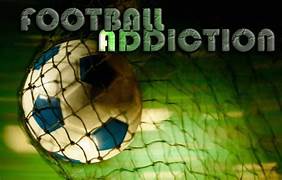
The world of professional sports often paints a picture of glory, fame, and triumph. Athletes are celebrated as heroes, admired for their talent, determination, and resilience. However, behind the accolades and the spotlight lies a more complex reality. For some athletes, the pressures of their careers, the physical toll of competition, and the weight of public expectations lead them down a path of addiction. Their journeys from glory to recovery reveal not only their struggles but also their incredible strength and capacity for transformation.
The Roots of Addiction in Sports
Addiction doesn’t discriminate, and athletes, despite their seemingly perfect lives, are not immune. The very nature of professional sports creates an environment ripe for substance abuse. The physical demands of training and competition often lead to injuries, and the pressure to recover quickly can drive athletes toward painkillers. Opioids, prescribed to manage pain, can become addictive when used for extended periods, creating a dangerous dependency.
In addition to physical pain, the emotional strain of competing at the highest levels can push athletes toward unhealthy coping mechanisms. The fear of failure, the pressure to win, and the need to meet relentless expectations often lead to stress and anxiety. For some, alcohol, recreational drugs, or performance-enhancing substances become a way to numb these feelings or gain an edge, ultimately trapping them in a cycle of addiction.
The Double Life of Addicted Athletes
For many athletes, addiction becomes a secret they struggle to hide. The stigma surrounding substance abuse in sports often forces them to live a double life, maintaining their public image as champions while privately battling their demons. This secrecy can delay treatment, making the problem worse over time.
The consequences of addiction can be devastating. Careers are derailed, relationships strained, and reputations tarnished. The very qualities that make athletes successful—intense focus, discipline, and competitiveness—can work against them when it comes to seeking help. Admitting to a problem can feel like admitting defeat, a concept many athletes find hard to accept.
The Journey to Recovery
Despite the challenges, many athletes manage to reclaim their lives from addiction. Recovery often begins with a moment of clarity—whether it’s a career setback, an intervention from loved ones, or a personal realization. Seeking professional help through rehabilitation programs, counseling, and support groups is a critical step in their journey.
Former professional basketball player Chris Herren is one such example. After years of battling substance abuse, Herren turned his life around and now works as a motivational speaker, sharing his story to inspire others. Similarly, Olympic swimmer Michael Phelps has been open about his struggles with depression and substance abuse, using his platform to advocate for mental health awareness.
The Power of Support and Advocacy
Athletes’ battles with addiction underscore the importance of a strong support system. Family, friends, teammates, and organizations play a crucial role in helping athletes navigate their recovery. Sports leagues are beginning to recognize their responsibility in addressing addiction, offering resources like counseling services and substance abuse programs.
Stories of recovery also shine a light on the resilience of the human spirit. These athletes prove that while addiction may be part of their story, it doesn’t define their legacy. Their journeys from glory to recovery remind us that healing is possible, and that even in the face of adversity, there is always hope for a brighter future.
By sharing their struggles and triumphs, athletes inspire others to seek help, break free from the chains of addiction, and rewrite their own stories of redemption.